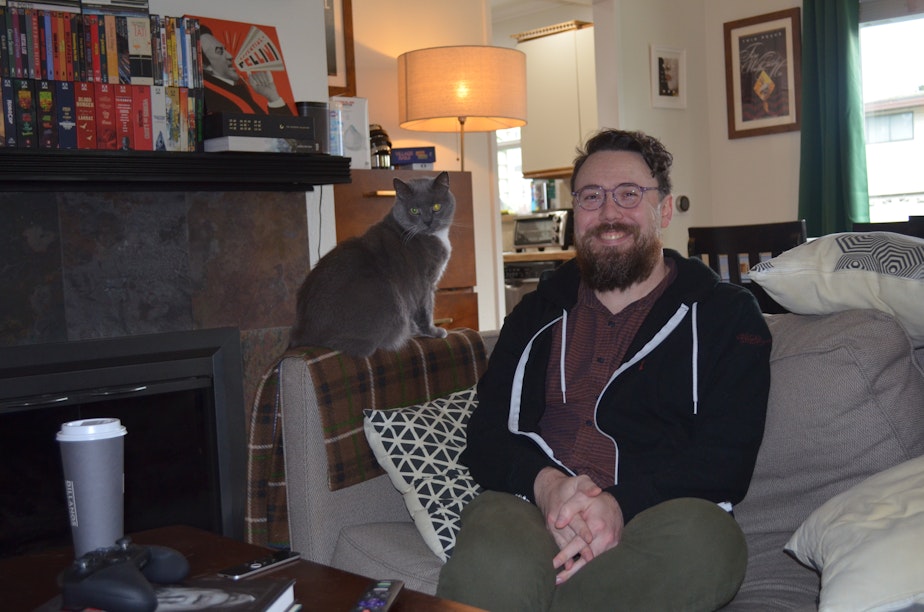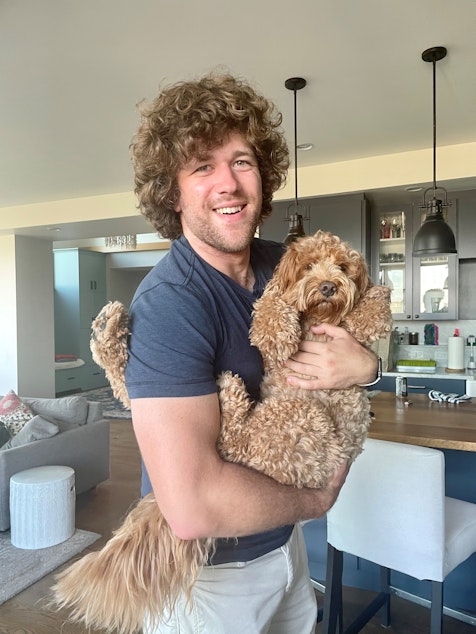Post-Roe, vasectomies tick up in the Seattle area

On certain days of the month, Dr. Grace Shih does nothing but vasectomies.
“It’s a simple, safe procedure,” she said. “It takes about 15 or 20 minutes.”
Shih is the director of vasectomy services at Planned Parenthood in Seattle, and she also does vasectomies at UW Medicine. Right after the Supreme Court’s Dobbs decision ending the right to an abortion in the United States, she said she noticed that the demand for vasectomies was up.
“Rather than having like six vasectomies in one day, we’ll have eight or so now,” Shih said.
Even in Western Washington, where abortions are still legal and available, vasectomies are up 34% post-Dobbs. The wait time for a vasectomy appointment in the Seattle area is now five or six months, and clinics that offer vasectomies are hiring more providers.
Sponsored
Shih said she’s not seeing more middle-aged men who already have kids. Rather, the uptick is being driven by younger men who don’t want to ever have kids.
Shih said it’s important that they’re sure, because vasectomies are not reliably reversible.
When counseling her patients, especially the younger ones, Shih said, “I will bring up permanence like I always do, and I might just interrogate that a little bit more in terms of like, ‘How long have you been thinking about it?’ And honestly, whenever I ask that question, people are like, ‘Years.’ It is always years.”
One person who’s been thinking about getting a vasectomy for years is 42-year-old Evan Pulgino. He’s a software engineer who owns a home in White Center, where he lives with his cat, Vigo.
Pulgino first started thinking about vasectomies more than 10 years ago, when he was in his late 20s. He and his girlfriend at the time faced an unexpected pregnancy.
Sponsored
“It was scary,” he said. “It was not something that I thought I would ever have to deal with. I was raised Christian and went to a Christian college. And there's a lot of stigma.”
Pulgino and his girlfriend decided to get an abortion.
He said, after that experience, he was way more focused on birth control. Before, he mostly relied on condoms. Afterwards, he always made sure he and his partner were using at least two kinds of birth control.
He knew that he wanted a vasectomy someday, but he said, “I tend to be a person that puts things off until the last minute. I just kind of let it slide.”
When the Dobbs decision was leaked last spring, Pulgino decided the time for procrastination was over.
Sponsored
“That week, I went online and made an appointment,” he said. “I knew like, okay, I can't justify delaying this anymore. I don't want to have kids. I need to take control of the situation.”
Another person who scheduled a vasectomy in response to the end of Roe is 27-year-old Jackson Peven, who lives in north Queen Anne.
“What was really a turning point was seeing all of my female friends' reactions to the news and the law and how much it impacted them,” Peven said. “This was kind of putting money where my mouth was, so to speak, and actually making a change to hopefully prevent any issue like this.”

Peven said Dobbs made the risk of an unintended pregnancy seem weightier, and he said getting a vasectomy seemed relatively painless, compared to what his partners have gone through to prevent pregnancy.
“I've had partners in the past who ... birth control really affects their moods, affects their weight, affects their appetite,” he said. “So by doing this, it's like, ‘Hey, you don't need to take the birth control if you don't want to.’”
Sponsored
Peven — and lots of other men — want to share the responsibility and the burden of preventing pregnancy. That brings up the bigger question of male contraception.
Right now, men only have two options: condoms and vasectomies.
Peven said he’d like to have more choices. He isn’t as sure as Pulgino that he’s never going to want children, so he’s freezing sperm before he gets the vasectomy, just to keep his options open.
“If there were a gel or a pill, then I think I would probably prefer that,” he said, “just because I don't know if I'll feel the way I do now in five years, in 10 years.”
The joke is that hormonal birth control for men is always five years away. That’s according to Dr. John Amory, a physician at UW Medicine who researches male birth control.
Sponsored
Amory said there’s no hormonal birth control for men yet, in part because it’s scientifically tricky. Birth control for women works by mimicking pregnancy, because women aren’t fertile when they’re pregnant.
“Men don't have an analogous period where they stop making sperm,” Amory said. “Men make sperm from the time they go through puberty until the day they die, so finding something to turn off sperm production has proven to be more challenging.
He said there’s a second issue, and it’s not scientific — it’s about who shoulders the risk of an unintended pregnancy. Since the advent of the pill, that’s been women.
The FDA has always required that birth control for women meet a certain standard. It can have side effects, like mood swings or cramps, or even more severe but rare side effects like blood clots, but it has to be safer than pregnancy. And pregnancy is risky: it can lead to things like high blood pressure and even death.
Amory said the U.S. Food and Drug Administration should use a similar standard for men. He said the risks inherent to pregnancy are an argument for male birth control too: partners can share the responsibility, the risk, and the rewards of heterosexual intercourse.
In other words, if a male birth control “is as safe as a female contraceptive, or even maybe hopefully safer,” Amory said, “then some risk to a man might be justified.”
Amory said he thinks there would be a market for a male birth control that prevented pregnancy but caused, say, acne, or occasional moodiness.
“Interestingly, when you talk to men about that, they're fine with taking on some degree of side effects,” Amory said.
Amory said researchers are working on lots of different options for male birth control. What they need now is a company willing to invest and run large clinical trials to help get a product on the market.
“It really takes [a] company to invest in one of those ideas, to sort of generate the amount of data on efficacy and safety that’s required for approval,” he said.
Amory said the potential market is huge: men all over the world who have relationships with women of reproductive age. He said the issue for investors is there’s some risk, because pretty much every birth control leads to lawsuits — for unintended pregnancies, birth defects, and side effects.
“If there’s going to be a path to a male contraceptive, it’s going to have to be a small company that’s willing to take on some risk,” Amory said. “If it’s proven to be safe and effective, after five years, the big company will gobble them up.”




